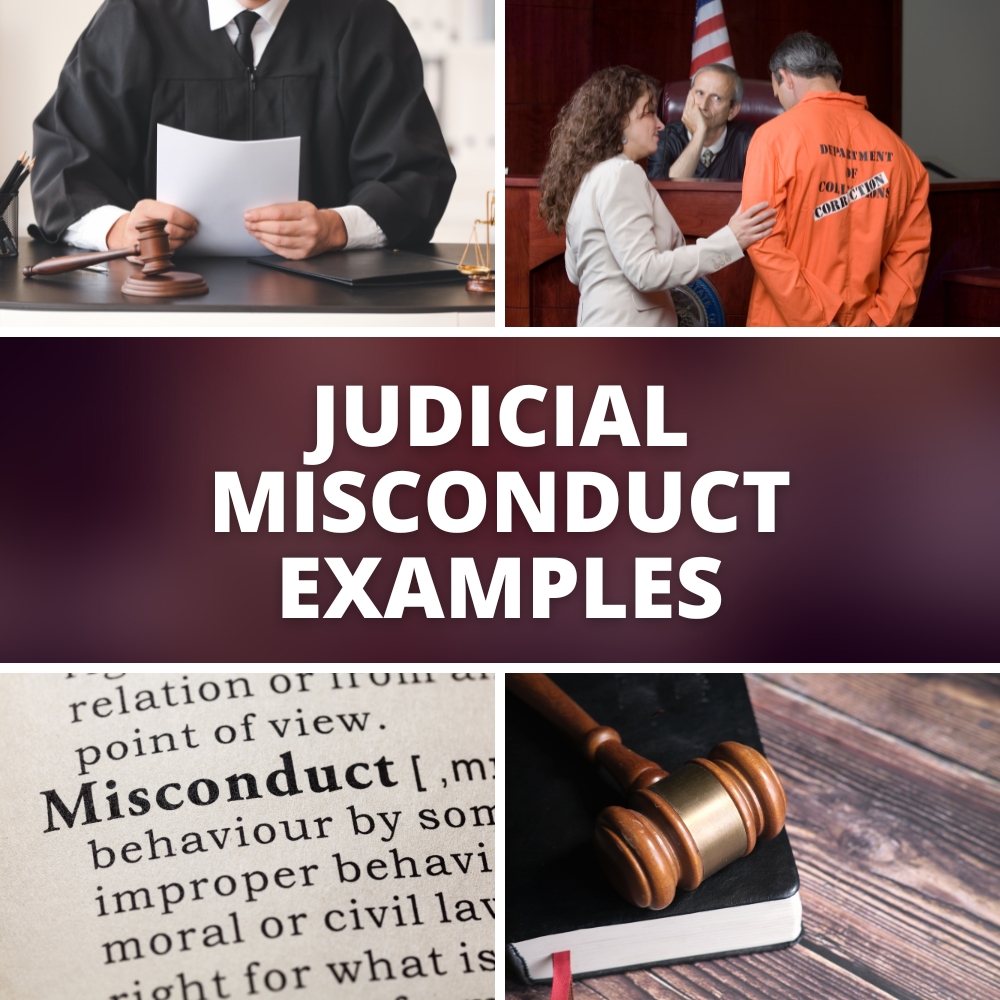10 Judicial Misconduct Examples
Judicial misconduct is a problem that has been around since the creation of the judicial system. Unfortunately, it continues to occur in courts both large and small. Judicial misconduct includes activities ranging from returning biased verdicts to engaging in inproper social activities. To ensure that all participants in the justice system receive a fair and impartial trial, understanding examples of judicial misconduct is key.

Judicial misconduct examples
1. Judicial Bias – Judicial bias can occur when a judge is not impartial or fair to a person who comes before the court. This type of misconduct occurs when a judge allows their own personal beliefs or opinions to influence the outcome of a case. Judicial bias can take various forms, such as: showing favoritism towards one party, allowing past contacts or relationships with attorneys or parties to influence their decisions, and displaying a lack of impartiality in their rulings.
2. Conflict of Interest – Conflict of interest can be defined as when a judge has a personal stake in the outcome of a case. This includes a judge having a financial, family, or other interest in the case. Conflict of interest may occur when a judge has a personal relationship with a party to a litigation or if the judge has ever had financial or other benefits from the attorney appearing in the case.
3. Ex Parte Communications – Also known as private conversations outside of the courtroom, ex parte communications occur when a judge holds communications or meetings with any party to a litigation or their attorneys without notifying the other parties to the case. This type of misconduct gives some parties an unfair advantage and can be seen as bias.
4. Abuse of Discretion – Abuse of discretion occurs when a judge exercises the power vested in them arbitrarily, unfairly, and in a way that harms a party. This type of misconduct is seen when a judge shows extreme favoritism towards one side, or refuses to hear all the evidence presented in a case. This type of misconduct is also seen when a judge is unwilling to give proper consideration for new evidence that could impact the outcome of a case.
- See also: 10+ Judicial Review Examples
5. Violation of Due Process Rights – Due process rights refer to the procedural rights and protections guaranteed to individuals under the U.S. Constitution, or state constitutions and laws. Due process is designed to ensure fairness in the legal system and prevent wrongful convictions of innocent individuals. Judges have a legal obligation to ensure that all parties to a case have a fair, impartial hearing and the right to be heard. This type of judicial misconduct occurs when a judge fails or refuses to protect due process rights.
6. Ignoring Court Procedures – Judges are required to follow established court procedures and rules of practice, as well as state and federal statutes and regulations. These rules and procedures are designed to ensure an even playing field for all parties. This type of misconduct includes refusing to hear pertinent documents or evidence, allowing evidence by a party to be improperly admitted, and not allowing proper consideration for newly discovered evidence.
7. Improper Use of Court Resources – Court resources involve the personnel, materials, and funds that are used in the courtroom for court proceedings. These resources must be spent on court duties only, and any use of them for private or personal purposes is considered judicial misconduct. Examples of improper use of court resources include using court staff to conduct personal errands, and using court funds to purchase items for personal use.
8. Intemperate or Abusive Language – The use of inappropriate language by a judge could be seen as judicial misconduct. This includes the use of strong, offensive, or insulting language in the courtroom. This type of misconduct indicates a lack of respect for the individuals and parties coming before the court, and is seen as bias or prejudice.
9. Improper Relationships with Court Attorneys or Parties – A judge has a duty to be impartial and impartiality is undermined when a judge has a close personal relationship with any of the attorneys or parties to a case. Examples of this type of misconduct include a judge engaging in social activities with attorneys or parties to a case, or having any type of favors done for them.
10. Improper Use of Security Measures – Judges have a duty to maintain the orderly proceedings of the court. This includes the use of security measures such as stationing bailiffs or other court personnel in the court room or hallway. This type of misconduct occurs when a judge uses these security measures in a punitive manner or uses the measures to make an individual or party feel inferior or embarrassed.
More judicial misconduct examples are coming soon…